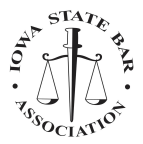Retaliation in the workplace is defined as an adverse employment action(s) against an employee because they have reported unlawful practices, served as a witness to support a claim, assisted or participated in any way in an investigation, grievance proceeding, or hearing regarding unlawful activity in the workplace including discrimination.
For example, an employee that reports a supervisor for sexual harassment may be subject to retaliation for reporting the issue. If a coworker corroborates the victims claim, they may too become a target for retaliation in the workplace.
Discrimination in the workplace is prohibited on the basis of race, color, religion, sex (including pregnancy and sexual orientation), national origin, age (40 or older), and disability. Nevertheless, discrimination in the workplace is common and sometimes employees are subject to retaliation, including termination, when they report a problem or stick up for coworker.
If an employee is targeted, but is not sure where they stand regarding a retaliation claim, federal case law and regulatory agency guidance provides three essential elements to a retaliation claim to understand:
- Protected Activity – An employee is free to engage in legally protected activities such as filing or participating in a complaint to oppose discrimination or other unlawful practices in the workplace. Anti-retaliation provisions make it illegal to take adverse actions against employees that expose unlawful practices.
- Adverse Action – When an employee reports or supports a fellow employee in a discrimination claim, for example, they may be subject to adverse employment actions (retaliation) which may include the denial of promotion, demotion, denial of benefits, suspension or termination. Adverse actions may also include, harassing, threatening or unfairly reprimanding an employee, negative evaluations, or other adverse treatment. Any one or a combination of these harmful actions may constitute retaliation.
- Proof of Causality – If an employee is subject to adverse action after engaging in a protected activity, they must provide direct or circumstantial evidence of causation when seeking a remedy which may include compensation for damages. An experienced employment law attorney can connect the dots, helping victims of discrimination and retaliation succeed in their claim.
If you have been fired or mistreated on the job because of your age, your gender, sexual orientation or gender identity, or your religion. If you have been subjected to racial discrimination, disability discrimination or any other form of unlawful employment discrimination, contact Iowa workplace discrimination and retaliation lawyer Marc Humphrey for immediate assistance at 515-331-3510.






